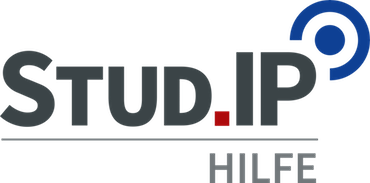Etherpad (formerly Stud.IPad)
The Etherpad (formerly Stud.IPad) is a plug-in that allows participants in an event to work on a document in real time (i.e. simultaneously).
From winter semester 2024/25, the new Etherpad plug-in will replace the outdated Stud.IPad function. The previously available functions of the Stud.IPad will of course be retained.
The Etherpad plug-in uses the open source software of the same name, EtherPad. This enables collaborative editing of texts (collaborative real-time editor). With the Etherpad, several people can edit a text document at the same time, with all changes immediately visible to all participants. The changes made by the various editors are highlighted in color.
The Etherpad documents are course-related in Stud.IP and only the registered course participants of the event are authorized to edit them.
Why use the Etherpad?
Etherpad is a simple tool that encourages collaboration through its ease of use and enables simple, quick and uncomplicated collaborative text editing. Students can work together on a document, communicate with each other, follow their own and others' train of thought, and add to and complete texts.
How do I use the Etherpad?
Etherpad is suitable for activities in which the creation and editing of various texts plays an important role.
Pads can be created for topics, groups, or people (only one member of the group). The whole group can/should edit topic-related pads together. Predefined groups work in the group-related pads. Only the person for whom the Stud.IPad was created works in the pads that are intended for people. An integrated chat is available for communication while editing the content.
Etherpad is suitable for example for...
> Brainstorming, finding topics, forming groups
> Collaborative editing of texts such as (e.g. translations of foreign language texts, Old and Middle High German texts, scientific texts, etc.)
> Noting links that belong to a specific, predefined topic
> Collecting bibliographic information
> Creating glossaries as a preliminary step before entering the texts into a wiki or another program
> Writing minutes
> Collaborative analysis of case studies
> Joint interpretation of graphics
> Joint, written preparation of a group presentation
What are the stumbling blocks?
This tool focuses on content-related, collaborative text creation and editing. The technical text formatting that is common in software such as Microsoft Word or OpenOffice is not provided here. After completion in Etherpad, the text must be inserted into another software and formatted there.
In addition, the current version of the tool does not contain a formula editor, which somewhat limits the possible applications in the MINT area.
The coordination of collaborative writing in an Etherpad should not be underestimated. It is important to consider the possible time required for the course's execution and organization. Establishing time structures (e.g. completion dates of various chapters) is helpful here.
